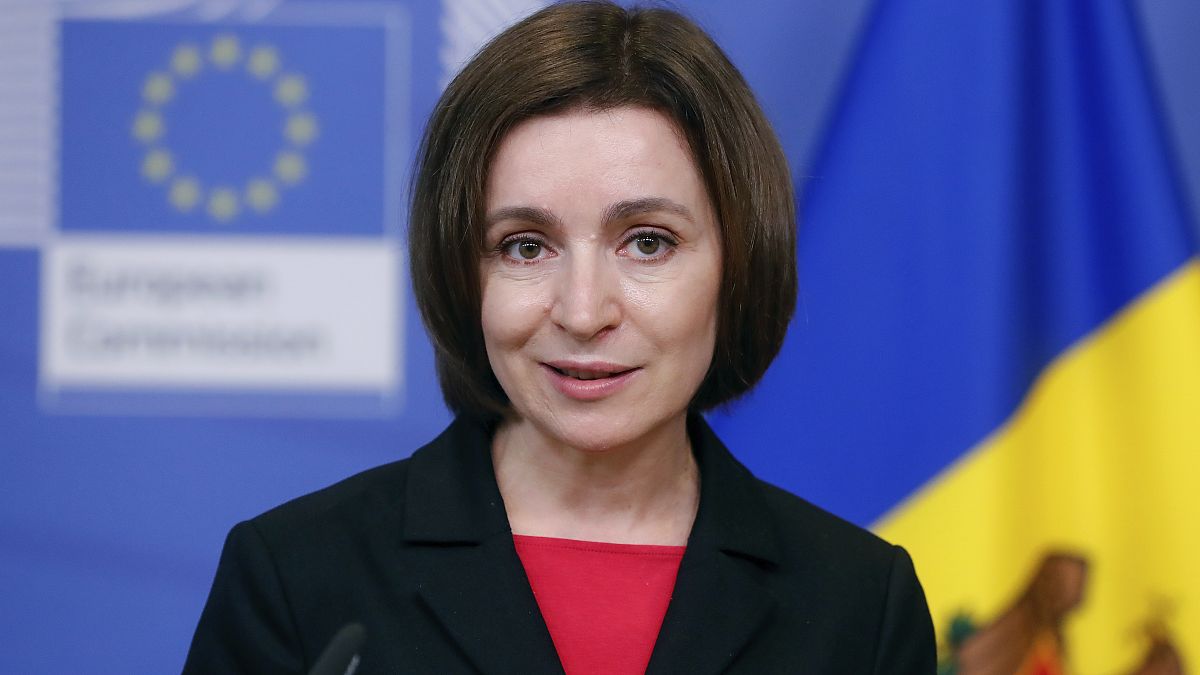"Confirming Moldova’s EU candidacy and outlining a robust integration policy would not only send a strong signal against Russian destabilisation attempts but would also rally the Moldovan people, who are eager for change."
Some years ago, in Brussels, while negotiating what would become Moldova’s EU Association Agreement, I invited policymakers not to wait for a war to break out before giving the region a clear signal on membership.
That was before 2014 and sadly the subsequent hesitancy from Europe did not go unnoticed by Vladimir Putin, who has since twice launched unprovoked hostilities against our neighbour Ukraine.
This week, EU leaders have a chance to reaffirm the European Commission’s formal recommendation and start Moldova’s accession process without delay.
The Russian invasion of Ukraine was audible on the streets of Moldovan capital Chisinau and, in the subsequent months, nearly half a million refugees have passed through the territory.
Around one hundred thousand have stayed, their wellbeing assured thanks to a concerted collaboration of state, civil society and ordinary citizens, many of whom have accommodated refugees in their own modest homes - an impressive effort for a country of Moldova’s size and means and one that has gained international plaudits.
In addition to this unprecedented humanitarian situation, Moldova faces challenges on multiple fronts: soaring inflation, trade disruption, an ongoing Russian propaganda campaign and even violent attempts to reignite conflict in the separatist region of Transnistria.
Confirming Moldova’s EU candidacy and outlining a robust integration policy would not only send a strong signal against Russian destabilisation attempts but would also rally the Moldovan people, who are eager for change.
EU is a grassroots desideratum in Moldova, an ever-growing majority of Moldovans are calling for it. And in the most recent elections Moldovans installed a pro-EU, pro-reform government, dislodging the pro-Russian former President Igor Dodon.
In a sign of Moldova’s commitment to transparency and the rule of law, Dodon is now being investigated for corruption. Other oligarchs are on the run too, and their ill-gotten gains are being returned to the state.
Moldova is not expecting a quick fix, it is understood that the accession process takes time and there are no shortcuts. But it is key to give Moldovan society a clear sense of direction, particularly in these volatile geopolitical times.
There are some in European capitals who worry that granting candidate status would provoke the Kremlin, but it should be evident by now from the war crimes being committed in Ukraine that Putin needs no provocation to create turmoil.
If Ukraine had not fought so valiantly, as it continues to do, Kyiv would have fallen, and Moldova would have been next in the firing line.
Moldova understands Russian aggression only too well – 12% of the country has been occupied by Russian forces since the 1990s. Recent mysterious explosions in Transnistria, almost certainly committed by Russian intelligence agents, were designed to test the resolve of careful confidence-building measures between Chisinau and Tiraspol. But the frozen conflict is not an interethnic issue, it is an artificial conflict stirred up by Moscow to undermine Moldova’s sovereignty. Despite its talk of independence, 70% of trade in Transnistria is with the EU and local elites there are starting to show resilience towards Kremlin pressure. This shows the valuable leverage that deeper EU integration brings to peacebuilding.
Moldova is already a known quantity, anchored to the EU in multiple ways. Two-thirds of the country’s trade is with the EU and due to the Russian blockade of the Ukrainian Black Sea ports, Moldova provides alternative transit routes for Ukraine’s exports via Romania. Chisinau has been mobilising to reduce its energy dependence on Russia by buying gas from Europe and integrating into the bloc’s electricity grid. Moldova is bolstering EU security by supporting the work of Frontex on the border of Ukraine. In addition, hundreds of thousands of Moldovan citizens live, work and study in the EU, fostering invaluable economic, social and cultural ties.
On 3 March, a week after the Russian invasion of Ukraine, Moldova officially applied for EU membership. Despite grappling with numerous crises, Moldova then engaged in a national effort by government, civil society, businesses and the diaspora community to complete paperwork totalling over 2,000 questions sent by the European Commission to assess the country’s harmonisation with EU legislation. By 12 May, the questionnaires were completed. Such efficiency is a testament to Moldova’s commitment to the reform, stability and prosperity that EU candidacy and eventual membership would bring.
Moldova has developed a vibrant civil society and a maturing, pluralistic political scene. With the carrot of EU candidacy status, this can only be accelerated as the government continues to fight corruption, reform the judiciary and tackle poverty. The country has for too long been held back by Moscow-sponsored kleptocrats and geopolitical divisions but now the direction is clear. Moldova does not seek any special treatment; it fully expects to be rewarded on merit. Thankfully the country has already demonstrated its political will to do the hard work.
Strategic ambiguity towards the EU’s friendly neighbours has failed at deterring Moscow’s imperial ambitions. We hope that our strong, demonstrable commitment to European prosperity and security will be matched with a clear vision for membership.
Iulian Groza is the Executive Director of the Institute for European Policies and Reforms (IPRE, Chișinău) and former deputy minister of Foreign Affairs and European Integration of the Republic of Moldova.
